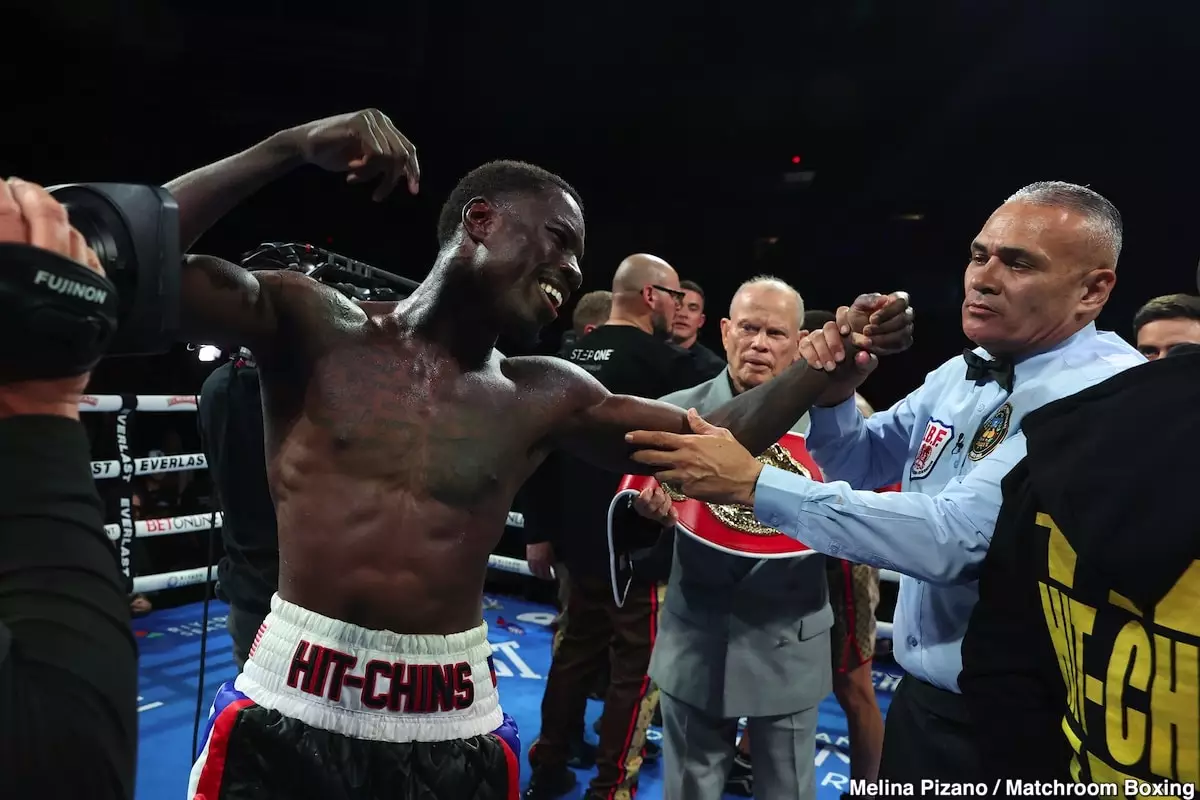Richardson Hitchins recently captured the IBF light welterweight title in a thrilling clash against Liam Paro, marking a significant milestone in his career. The bout, held at the esteemed Coliseo Roberto Clemente in San Juan, Puerto Rico, ended with a split decision, with scores of 117-111 for Paro and 116-112 for Hitchins twice. While the victory was a cause for celebration, the scoring left many viewers perplexed, particularly the 117-111 score favoring Paro, which seemed disproportionate given the dynamics of the match. This judgment raised eyebrows and ignited discussions about the scoring inconsistencies prevalent in boxing.
In the initial rounds, Hitchins displayed a measured approach, taking his time to adapt to Paro’s unique fighting style. Initially, he faced challenges as Paro’s southpaw stance and crafty movements proved to be tricky. However, as the fight progressed, Hitchins began to assert his dominance, landing quick and powerful jabs that kept Paro on the defensive. The second half of the fight saw Hitchins dominate with his precise striking, earning him not only the title but establishing himself as a fighter to watch.
After the bout, promoter Eddie Hearn expressed optimism about Hitchins’ future prospects in securing high-profile fights. Hearn’s job is now to navigate the complex landscape of boxing where many fighters tend to avoid facing skilled opponents, especially those with styles that pose significant challenges. Although Hearn mentioned potential matchups against names like Ryan Garcia, Devin Haney, and Teofimo Lopez, he seemed to be acutely aware of the uphill battle ahead. Given the current competitive climate, persuading these fighters to step into the ring with Hitchins could prove to be a daunting task.
Hitchins himself acknowledged the unpredictable nature of matchmaking in boxing, stating that while he was looking forward to fighting notable names, there was a possibility he might end up facing less renowned opponents like Jack Catterall. This encapsulates the reality that even with a championship belt, the allure of potential rivalries may not suffice to draw other prominent fighters into the ring with him. Hearn’s lukewarm enthusiasm post-fight further hinted at the ongoing complexities of securing high-stakes matchups for emerging champions.
Throughout the fight, Hitchins revealed his respect for Paro’s skills, describing him as “crafty” and skilled. This acknowledgment indicates Hitchins’ understanding of the strategic elements essential to boxing, highlighting his growth as a fighter who can analyze his opponents effectively while adapting his strategies mid-fight. It’s notable that Paro, in his previous bout against Subriel Matias, had adopted a different fighting approach, suggesting that he might have tried to employ unconventional tactics to keep Hitchins off balance. Unfortunately for Paro, this transformation did not pay off—he found himself repeatedly outmaneuvered.
Hitchins’ ability to dissect Paro’s style also emphasizes the importance of adaptability in boxing. The evolution of a fighter, especially after a significant loss or in the wake of criticism, can set the stage for either success or failure. Therefore, Paro’s transition in fighting style ultimately worked against him, and Hitchins capitalized on these shortcomings to secure a decisive victory.
With the IBF title in hand, Hitchins now finds himself at a critical juncture in his career. While the title should theoretically open doors, the reality is that top contenders may regard him as a risky opponent rather than a lucrative challenge. Moreover, as Hearn pointed out, without the involvement of influential figures who can sway big-name fighters, prospects for securing high-profile bouts may remain bleak.
Furthermore, Teofimo Lopez’s interest in a possible matchup with Hitchins sparks curiosity, but motives must be scrutinized. Lopez’s quest for attention in a sport that thrives on rivalries could overshadow a genuine willingness to challenge the newly crowned champion.
As Hitchins navigates his newfound status, he must remain focused on honing his skills and staying in the ring as much as possible. In a sport where momentum can be fleeting, the ability to maintain a steady trajectory while seeking the right fights will ultimately define his career. The journey ahead appears promising for Richardson Hitchins, yet it is fraught with challenges that will require determination, strategic decision-making, and perhaps a bit of luck.


Leave a Reply